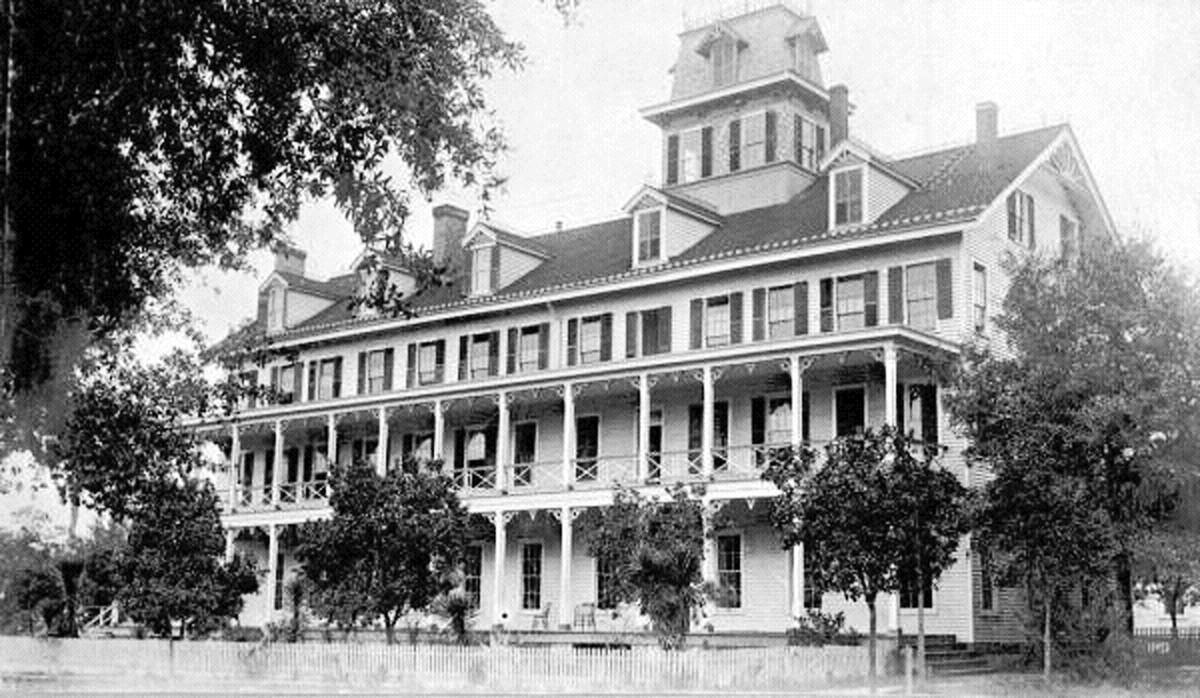1880s Florida real estate marketing shenanigans
In the 1880’s, touting Florida to snow bound Yankees was a bonanza for Northern-based travel writers and newspaper scribes.
Singing Florida’s praises was most popular because it offered the …
This item is available in full to subscribers.
Attention subscribers
To continue reading, you will need to either log in to your subscriber account, or purchase a new subscription.
If you are a current print subscriber, you can set up a free website account and connect your subscription to it by clicking here.
If you are a digital subscriber with an active, online-only subscription then you already have an account here. Just reset your password if you've not yet logged in to your account on this new site.
Otherwise, click here to view your options for subscribing.
Please log in to continueDon't have an ID?Print subscribersIf you're a print subscriber, but do not yet have an online account, click here to create one. Non-subscribersClick here to see your options for subscribing. Single day passYou also have the option of purchasing 24 hours of access, for $1.00. Click here to purchase a single day pass. |
1880s Florida real estate marketing shenanigans
In the 1880’s, touting Florida to snow bound Yankees was a bonanza for Northern-based travel writers and newspaper scribes.
Singing Florida’s praises was most popular because it offered the chance for opportunistic writers to travel to warmer climes where they were welcomed and entertained lavishly by recently transplanted developers anxious to sell land.
Books, periodicals and newspaper articles waxed eloquently of the lush vegetation, trophy fish and game opportunities and chronicled the sophisticated hotel facilities. They promised good health, wealth and fulfillment of any dream. But, there were some things they never mentioned.
Writers told of flocks of Ibis so dense they blocked the sun. They described spectacular Painted Buntings in numbers too high to count. There were stories of fish that practically jumped in the boat and deer, bear and fox so numerous even the novice hunter was guaranteed success. All this may have been true but, it was only part of the story.
Such shading of the truth was honed to a fine art by developers like Washington Benedict in Orange Park who insisted in advertising brochures that his Orange Park settlement had “no bars, no weeds, and no mosquitoes.” His partner Alpheus Blake stretched the tale even further and claimed that “the chickens were born fried.” The absence of bars was true but that soon changed – probably because of the weeds and mosquitoes. It’s impossible to justify the fried chicken thing.
Early settlers and visitors were convinced that incessant mosquitoes could cause madness only later would they learn the part they played in transmitting disease. Madness was considered enough. Before the days of window and door screens, luxury hotels like the Clarenden in Green Cove Springs provided beds draped in netting, which newly arrived guests considered a romantic touch. They soon learned the truth.
For every gift of the unique and beautiful Florida delivered there was a downside, a price to pay. The rich soil and humid, mild climate along the St. Johns River and Black Creek produced dense and diverse vegetation which attracted game animals in great numbers. It also created a situation perfect for the production of an amazing variety and numbers of insects.
Mosquitoes were only the beginning. It would be a tossup whether tourists and settlers in those early years were most surprised by the mosquitoes, redbugs or roaches.
Every Boston or Philadelphia maven was smitten at first sight by the graceful Spanish moss dripping from the Live Oak trees. They all collected vast quantities to take back home. Despite warnings from locals they generally persisted. They draped themselves in stoles of the stuff and crammed it in their luggage – along with hordes of redbugs that populate the moss.
Successful Clay County settlers learned quickly to make use of and appreciate the land’s natural gifts and to fix or change what they could of the less pleasant aspects. If that failed, they simply gritted their collective teeth and lived with it or – made fun of it.
Legend has it that one enterprising Middleburg merchant convinced tourists to buy his vile scented lard mixture and then pay to sit on his porch to watch the bats fly through the twilight gulping gnats in midair. Longtime residents say mosquitoes won’t bite as much if one drinks Clay County’s natural rotten egg smelling sulfur water. This is supposed to be true even though they claim to have “swung a pint jar and caught a quart of them.”
One has to wonder if it was one of those early real estate promoters who came up with the lofty seemingly innocuous name of Palmetto Bug to describe the roach. First lesson man, woman and child learned when living in Florida in the early days was to light the lamp before entering a room at night – to give the roaches time to get away.
Early settlers lived intimately with the beasts. Only items sealed in recycled lard cans had any degree of protection. It is a fact, however, that you won’t have roaches if you keep a healthy supply of yard chickens. It would be good to remember that.








